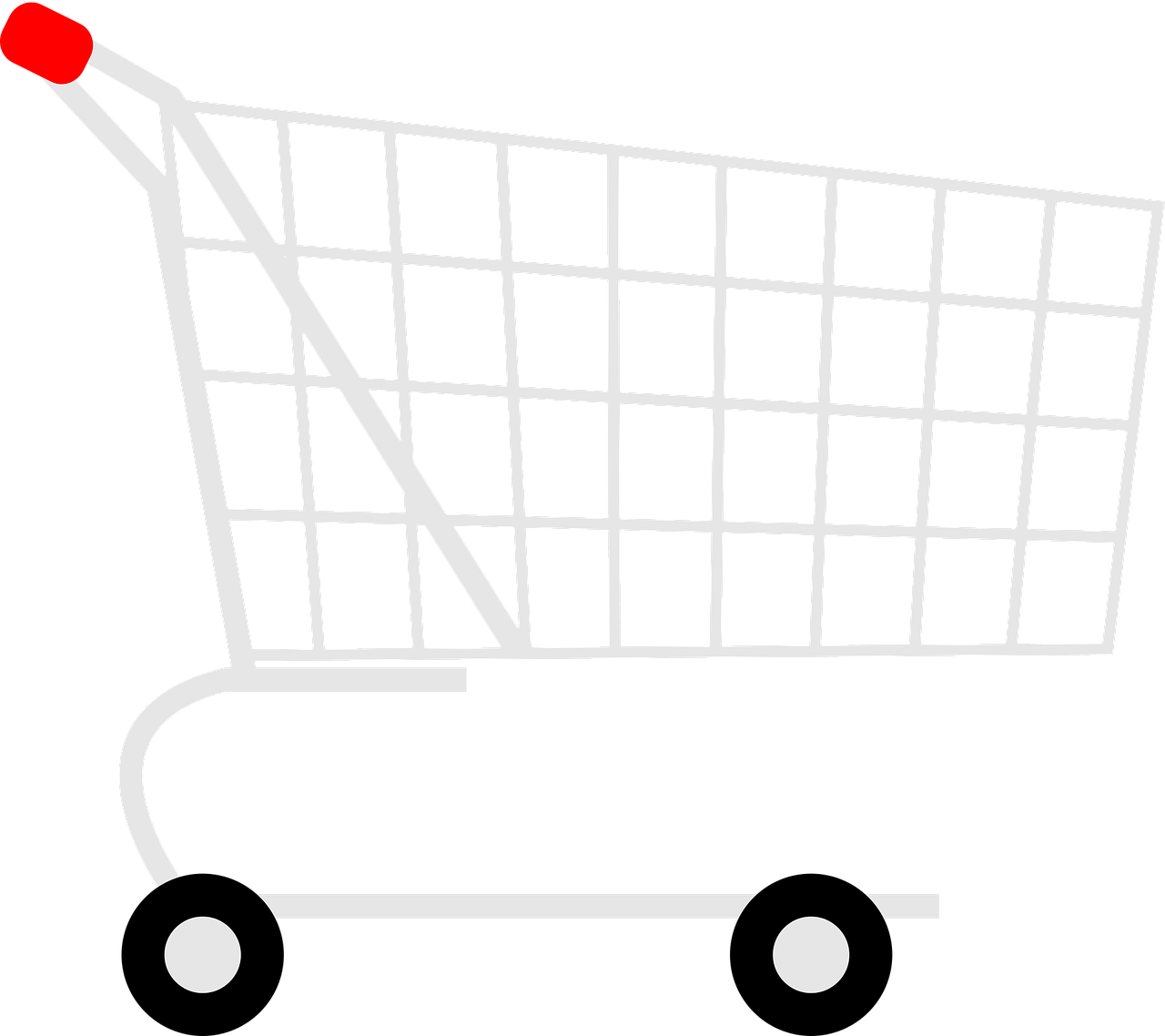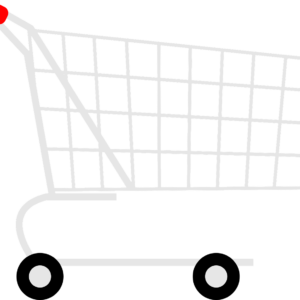In today’s fast-paced consumer culture, it’s easy to get caught up in the excitement of sales and end up making impulse purchases. However, by shopping smart and taking advantage of sales throughout the year, you can avoid those last-minute splurges and make the most of your money. By planning ahead and keeping an eye out for discounts, you’ll be able to shop early, saving yourself from the temptation of impulse buying. So, get ready to shop smart and make the most of sales while steering clear of those spontaneous and regrettable purchases.
Shop Early
When it comes to shopping smartly and avoiding last-minute impulse purchases, the first and most important step is to shop early. By starting your shopping early, you give yourself the advantage of time and can take advantage of sales throughout the year. Many retailers offer great deals and discounts at various times, not just during the holiday season. By keeping an eye on these sales, you can save money and avoid the rush and stress of last-minute shopping.
Take advantage of sales throughout the year
Retailers often hold sales and promotions throughout the year, not just during major shopping events like Black Friday or Cyber Monday. By keeping an eye on the sales calendar for your favorite stores, you can snatch up great deals on items you want or need. For example, electronics tend to go on sale during major holidays like Independence Day or Memorial Day. Similarly, clothing retailers often have mid-season sales or discounts before new collections are released. By planning your purchases around these sales, you can save a significant amount of money.
Plan ahead for major shopping events
While shopping throughout the year is a smart strategy, it’s also important to plan ahead for major shopping events. These events, such as Black Friday or Cyber Monday, often consist of unbeatable deals and discounts. By creating a shopping list in advance and knowing what you want to purchase, you can take full advantage of these events without getting overwhelmed by the sheer number of options available. Research the best deals beforehand and prioritize your purchases to make the most of these major shopping events.
Stay Organized
Staying organized is key to making the most of your shopping experience. By creating a shopping list and setting a budget, you can stay focused and avoid unnecessary purchases.
Create a shopping list
Before embarking on a shopping spree, take some time to create a shopping list. Write down the items you need or want to purchase, whether it’s groceries, clothing, or household items. By having a clear list, you can avoid aimlessly browsing and getting distracted by unnecessary items. Stick to your list and only purchase the items that are on it.
Set a budget
Another crucial step to staying organized and avoiding impulse purchases is setting a budget. Determine a realistic amount of money you are willing to spend on your shopping trip or a specific item. This will help you make more conscious decisions and prevent overspending. When setting your budget, consider your financial situation and prioritize your needs over wants. Knowing your budget will also allow you to better evaluate the value and necessity of each purchase.

Research and Compare Prices
Researching and comparing prices is an essential part of shopping smartly. By conducting online research and taking advantage of discounts and coupons, you can ensure you are getting the best price for the products you want to purchase.
Do online research
Before making any purchase, it’s important to do your due diligence and conduct online research. Visit different retailers’ websites or online marketplaces to compare prices, read reviews, and check product specifications. This will give you a good idea of the average market price for the item you are interested in. Additionally, you can look for online forums or social media groups where people share their shopping experiences and provide recommendations. This research will empower you to make informed decisions and avoid overpaying for a product.
Check for discounts and coupons
When shopping online or in-store, always make sure to check for discounts and coupons. Many retailers offer promotional codes or printable coupons that can significantly reduce the price of your purchase. Before checking out, search for any available discounts or coupons for the items you are buying. Additionally, consider signing up for newsletters or loyalty programs of your favorite stores. They often send exclusive discounts or notify you of upcoming sales. By taking advantage of these discounts and coupons, you can save money and keep more cash in your wallet.
Shop Off-Peak Hours
To have a more pleasant shopping experience and to avoid crowds and long lines, it’s advisable to shop during off-peak hours. Avoid weekends and holidays when stores tend to be busy, and opt for weekdays or early mornings instead.
Avoid weekends and holidays
Weekends and holidays are typically when most people have time off work and decide to go shopping. As a result, stores are often crowded, and lines can be long. To avoid the crowds and ensure a more relaxed shopping experience, try to plan your shopping trips on weekdays. If you have the flexibility, choose a day when most people are at work or school. This way, you can navigate the aisles at your own pace without feeling rushed or overwhelmed.
Visit stores during weekdays or early mornings
Shopping early in the day, especially during weekdays, can have numerous advantages. The stores are usually less crowded, which means that you can browse without being constantly bumped into or waiting in long lines to pay for your purchases. Additionally, store shelves tend to be better stocked and organized earlier in the day, so you have a higher chance of finding the items you need in their proper place. Take advantage of the quiet and calm atmosphere, and enjoy a stress-free shopping experience.

Shop with a Purpose
One of the easiest ways to fall into the trap of making impulsive purchases is to browse aimlessly without a clear purpose. To avoid unnecessary spending, it’s crucial to shop with a purpose and focus on your specific needs.
Avoid browsing aimlessly
When you enter a store or start shopping online, it’s important to have a purpose and a clear idea of what you’re looking for. Avoid aimlessly browsing through different sections or websites, as this can lead to buying items you don’t truly need. Stick to your shopping list and only explore the areas or categories that align with the items you are seeking. This way, you can maintain focus and avoid being swayed by enticing displays or unrelated products.
Focus on your specific needs
While shopping, remind yourself of your specific needs and avoid getting distracted by unnecessary items. If you are shopping for clothing, for example, focus on the pieces that will fill a gap in your wardrobe or replace worn-out items. Similarly, when grocery shopping, concentrate on buying the ingredients for the meals you have planned rather than adding random items to your cart. By shopping according to your needs, you can avoid accumulating unnecessary items and ensure a more purpose-driven shopping experience.
Avoid Impulse Traps
Retailers often employ strategies to entice customers into making impulse purchases. By being aware of these tactics and consciously avoiding them, you can stay in control of your shopping and resist the temptation to buy things you don’t truly need or want.
Don’t fall for limited-time offers
Limited-time offers, such as flash sales or 24-hour discounts, can make it seem like you’re missing out if you don’t buy immediately. However, it’s important to remember that these offers are often designed to create a sense of urgency and push you into making a hasty decision. Take a step back and consider whether the item is something you genuinely need or if you’re being swayed by the time constraint. In most cases, it’s better to take your time, do your research, and make a more informed decision.
Don’t get swayed by persuasive sales tactics
Salespeople are trained to use persuasive tactics to encourage customers to buy more or spend more than intended. Examples include offers like “buy one get one free” or “spend $X and get a free gift.” While these can be tempting, it’s essential to evaluate whether the additional items or higher spend align with your needs and budget. Be aware of these tactics and don’t be afraid to politely decline if they don’t align with your shopping goals. Stay focused on your shopping list and the items you have predetermined to purchase.
Use Price Tracking Tools
To ensure that you’re getting the best price for the items you want to buy, consider using price tracking tools. These tools allow you to track the price history of a product and set alerts for desired items when their price drops.
Track price history with apps or websites
Several apps and websites can track the price history of products. These tools provide valuable insights into whether an item is currently priced higher or lower than usual. By monitoring the price history, you can make an informed decision about when to buy. Some tools even provide charts or graphs that visually represent the price fluctuations. This way, you can ensure that you’re purchasing an item at its lowest price or when it has the most significant discount.
Set price alerts for desired items
Another useful function of price tracking tools is the ability to set price alerts for desired items. When you have a specific product in mind but aren’t in a rush to purchase it, set up a price alert. These alerts will notify you when the item drops to your desired price or reaches a specific discount percentage. This way, you can avoid constantly monitoring the price and waiting for it to change. Price alerts allow you to be patient and make the purchase at the most opportune time, ensuring you get the best deal possible.
Consider Quality and Value
When shopping, it’s crucial to look beyond the price tag and consider the quality and value of the products you’re interested in. While saving money is important, it’s equally essential to invest in items that are durable and will serve your needs in the long run.
Look beyond the price tag
While a low price can be tempting, it’s essential to evaluate the overall value of a product beyond its price tag. Consider factors such as the item’s quality, brand reputation, and customer reviews. Sometimes, spending a little more on a higher-quality item can save you money in the long term because it’s more durable and won’t need to be replaced as frequently. Assess whether the price justifies the quality and functionality of the product, and prioritize value over the initial purchase price.
Evaluate the durability and usefulness of the product
Before making a purchase, take a moment to evaluate how durable and useful the product will be in your life. Consider factors such as its lifespan, maintenance requirements, and whether it meets your specific needs. For example, when buying appliances, research their estimated lifespan and energy efficiency. When shopping for clothing, assess the quality of the fabric and the garment’s construction. By taking these aspects into account, you can ensure that you’re investing in products that will provide long-term value and satisfaction.
Take Advantage of Loyalty Programs
Store loyalty programs can be a fantastic way to save money and earn rewards on your purchases. By joining these programs and utilizing loyalty benefits, you can maximize your savings and enhance your shopping experience.
Join store loyalty programs
Many retailers offer loyalty programs that provide exclusive benefits to their members. These programs are usually free to join and offer perks such as discounts, special promotions, or early access to sales. Take the time to sign up for these loyalty programs at your favorite stores. By doing so, you can unlock additional savings and potentially gain access to members-only events or exclusive deals. Make sure to provide your email address or download any accompanying apps to receive personalized offers and discounts.
Utilize rewards and discounts
Once you’ve joined a store’s loyalty program, make sure to regularly check for rewards and discounts. Loyalty programs often offer points or rewards for every purchase you make, which can be redeemed for discounts on future purchases. Additionally, keep an eye out for special promotions or offers exclusive to loyalty program members. These can include bonus points, double-dip promotions, or even free products. By utilizing these rewards and discounts, you can maximize your savings and make the most of your membership.
Wait for Sales Events
To secure the best deals and discounts, it can be beneficial to wait for specific sales events. Whether it’s Black Friday, Cyber Monday, or end-of-season and clearance sales, timing your purchases strategically can save you a significant amount of money.
Black Friday and Cyber Monday
Black Friday and Cyber Monday are globally recognized sales events that offer massive discounts and deals both in-store and online. If you can wait until these events, you’ll likely find incredible bargains on a wide range of products. Whether you’re shopping for electronics, clothing, or household items, these sales events are known for their unbeatable prices. However, keep in mind that the popularity of these events means that inventory can sell out quickly. Therefore, it’s essential to plan ahead, do your research, and be prepared to make your purchases promptly.
End-of-season and clearance sales
Another opportune time to find great deals is during end-of-season and clearance sales. Retailers often need to make room for new inventory and will significantly reduce the prices of their current stock. Take advantage of these sales to snag high-quality items at a fraction of their original price. For example, end-of-summer sales are an excellent time to purchase swimwear or outdoor equipment, while end-of-winter sales are ideal for buying coats or boots. By waiting for these sales events, you can save money while still getting the items you want.
In conclusion, shopping smartly and avoiding last-minute impulse purchases requires careful planning, organization, and self-control. By shopping early, staying organized, researching and comparing prices, shopping during off-peak hours, focusing on your needs, avoiding impulse traps, utilizing price tracking tools, considering quality and value, taking advantage of loyalty programs, and waiting for sales events, you can make the most of your shopping experience and save yourself from unnecessary stress and expenses. Remember to shop with a purpose, be aware of persuasive sales tactics, and prioritize value over price. By adopting these strategies, you can become a savvy shopper who makes informed decisions and finds the best deals possible. Happy shopping!

